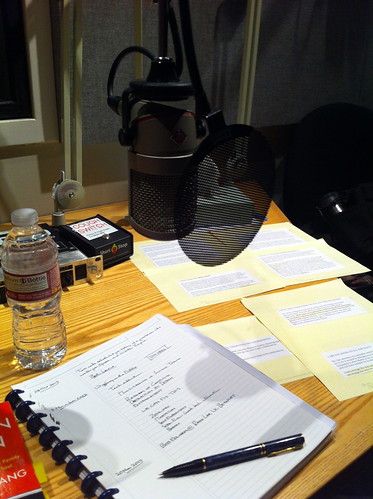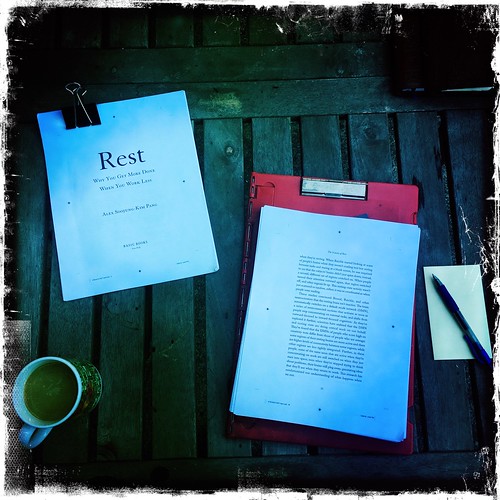Happier Now author Nataly Kogan tweets about writing as a tool for thinking:
So much this.
It was the biggest lesson I learned when writing my first book.
Mine was published, but I’ve said to many people since that even if you don’t want to publish a book, writing one is an incredibly meaningful exercise. https://t.co/oMNEeCc1a9
— Nataly Kogan (@natalykogan) February 7, 2020
Louis Brandeis said, there is no great writing, only great rewriting. Everyone serious writer who I’ve talked to about this (whether or not they write for a living) recognize the truth in that statement. The first draft is what you write in order to figure out what you’re arguing, and to test how well the ideas and structure work. It’s not a finished work, and if you don’t worry about that, it’s more likely that you’ll publish a good book— and a lot more likely that you’ll finish it, rather than work on it forever— than if you set out to write a perfect first draft.
What’s impressed me over the course of my last three books, though, is that there’s a lot of thinking and refinement you can continue to do after the book is published. I didn’t really have that experience with first book, which was an academic monograph; it was positively reviewed, but you don’t do a book tour or have to explain your work to non-experts.
With THE DISTRACTION ADDICTION and REST, in contrast, I had to do a lot of press: a morning drive-time tour, old-fashioned radio shows, noon-time call-in shows, BBC radio programs, op-ed and magazine pieces, conference appearances, etc. etc.
In fact, the questions I got during those call-in shows got me thinking about the structural and organizational impediments that we face in trying to build more rest into our daily schedules and lives— which put me on the path to writing SHORTER.
And the cycle is about start again, as the press for SHORTER is starting in earnest. Next week I’ll be in London, speaking at the RSA, University of Kent, and Life Lessons conference, and doing a ton of press.
When I started doing this, it was a challenge: explaining your book in ten seconds, giving pithy and memorable answers to questions, and (for me at least) simply not tripping over yourself, takes practice. It’s craft, and it’s not easy at first. But you get better at it.
But what I’ve also discovered is that the process of talking about the book, working on talks, writing short articles for different audiences, isn’t “merely” an exercise in boiling down your work to its essence. It’s an opportunity to extend your thinking: to dive deeper into some subjects, to draw out the implications for this profession or community, to think a little more broadly or speculatively than you could in the book, to think with others about the implications of your argument.
In effect, following Brandies, it can serve as yet another kind of revising. That makes it a lot more intellectual exciting.
This, in turn, takes some of the pressure off you an author to labor over a book until every sentence is perfect. That approach, I think, generates a very tiny number of marvelous books, and a gigantic number of that are never finished. If you think the book is the last chance you have to talk about a subject (a common feeling when you’re writing your dissertation), you want it to be perfect.
But if the book as a foundation that you’ll build on, rather than the finished house, your expectations change: you still want it to be very solid, and of course you don’t sacrifice accuracy or abandon fact-checking, but you don’t have to agonize over it the way you would if it’s your Last Statement. You don’t take forever to write the perfect book; you write best book you possibly can within your deadline.
So Nataly is right: writing is incredibly useful a practice for sharpening your thinking. And talking about the writing is a fruitful chance to further extend it.



